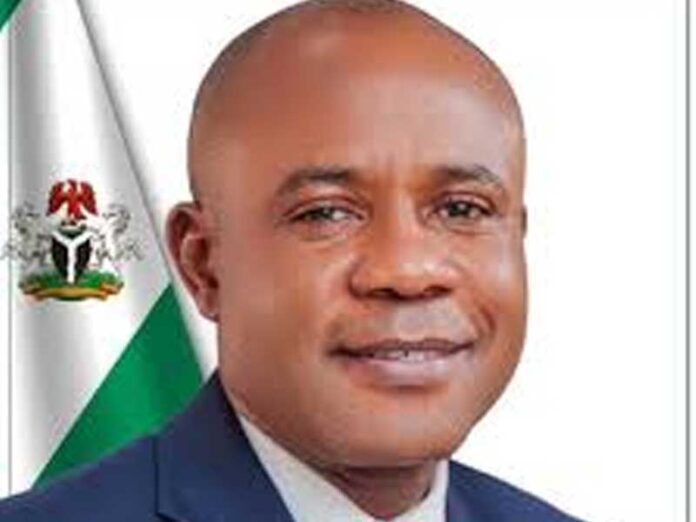*Calls for emulation of Azikiwe’s ideals
CHIGOZIE AMADI
The Governor of Enugu state, Peter Mbah, has called on African countries to harness the continent’s growing youth population, projected to hit an estimated 850 million by 2050.
Mbah, who spoke at the Annual Zik Lecture Series to mark the late nationalist, Dr Nnamdi Azikiwe’s 120th posthumous birthday in Awka, Anambra state, further called for the strategic management of Africa’s growing population, which he said could pose an asset or a liability in the future.
“The African Continental Free Trade Area (AfCTA) is a bright spark on the horizon. But so much still needs to be done. Africa’s population is expected to reach 2.5 billion by 2050, which represents a doubling of its current population.
“The continent’s youth population is also projected to reach 830 – 850 million in that same period. This could be an asset; but it can also be a keg of gunpowder.
“It would be an asset if there is sustained investment to grow Africa’s human capital. However, a nightmare scenario could beckon if the burgeoning youth population sees no job prospects that are commensurate to the rich resources across the continent,” the governor stated.
Mbah argued that Azikiwe’s appeal wasn’t just in regard to his broad-mindedness, but was also a beacon of selflessness, and he understood quite clearly that public office meant service to the people.
According to the governor, there was never any hint of ‘hubris in his life’, noting that he devoted his life to building an inclusive society, demonstrating that commitment through his actions.
He recalled that it was under Azikiwe’s watch, as leader of the National Council of Nigeria and the Cameroons (NCNC), that one Mallam Umaru Altine, a Fulani, emerged as the first mayor of Enugu and that he gave his support to a ‘settler’ from Sokoto than to a fellow easterner.
“We should all be inspired by such ennobling ideals, especially in the times that we live in. Through his exemplary life committed to service, Dr. Azikiwe kindled the flame that lit the paths that generations have walked. The challenge for the coming generations is to keep the embers of that flame burning,” he pointed out.
At the event where the African Union High Representative and former President of the Economic Community of West African States (ECOWAS), Dr Ibn Chambas, was the guest lecturer, Mbah argued that applying the core messages of Azikiwe’s ideals would go a long way to put Africa on the path of resurgence.
“This would at last enable Africa to obtain credible capacity to negotiate with its huge youthful population and significant material resources with the rest of the World.
“With this, Africa will at last move away from the subsistence level to real quantum growth, while freedom from the shackles of poverty and ignorance would be an icing on the cake,” he added.
He stated that one of Azikiwe’s legacies was the profound power of his mind and the pragmatic powers of his life philosophies.
In just 13 years of the Annual Zik Lecture Series, he noted that it has grown to such extent that it has become a major calendar highlight in Nigeria and beyond, lending perspectives to and clarity to many socio-political and economic issues.
Mbah stressed that it was easy to agree that Azikiwe’s thoughts and activism represent some vivid benchmark against which many contemporary socio-political developments could be weighed.
When the Nigerian Youth Movement (NYM) of which Azikiwe had been a prominent member was founded in 1934, the total estimated population of Nigeria , he said, was a little over 20 million, including the Mandate Territories of the Cameroons.
“Today, with a population over 200 million and an incredibly enormous youth bulge, a new kind of social movement has emerged, aided by the tools of the social media. They are young, tech-savvy, almost irreverent, and flaunt a leadership that is largely amorphous.
“The angst of these movements may not be fuelled by the kind of idealism that birthed the independence movements of the 1940s and 1950s, or the tussles over military rule of the 1970s and 1980s, but their motivation may yet be deemed quasi-idealistic – as evident in the “EndSars” protests of 2020.
“But, by and large, the roots of their angst are economic – as the recent protests in Kenya and Nigeria clearly showed. Across Africa, the angst of the youth is increasingly being felt,” he argued.

























